Overland Africa: 15 Important Things We’ve Learned
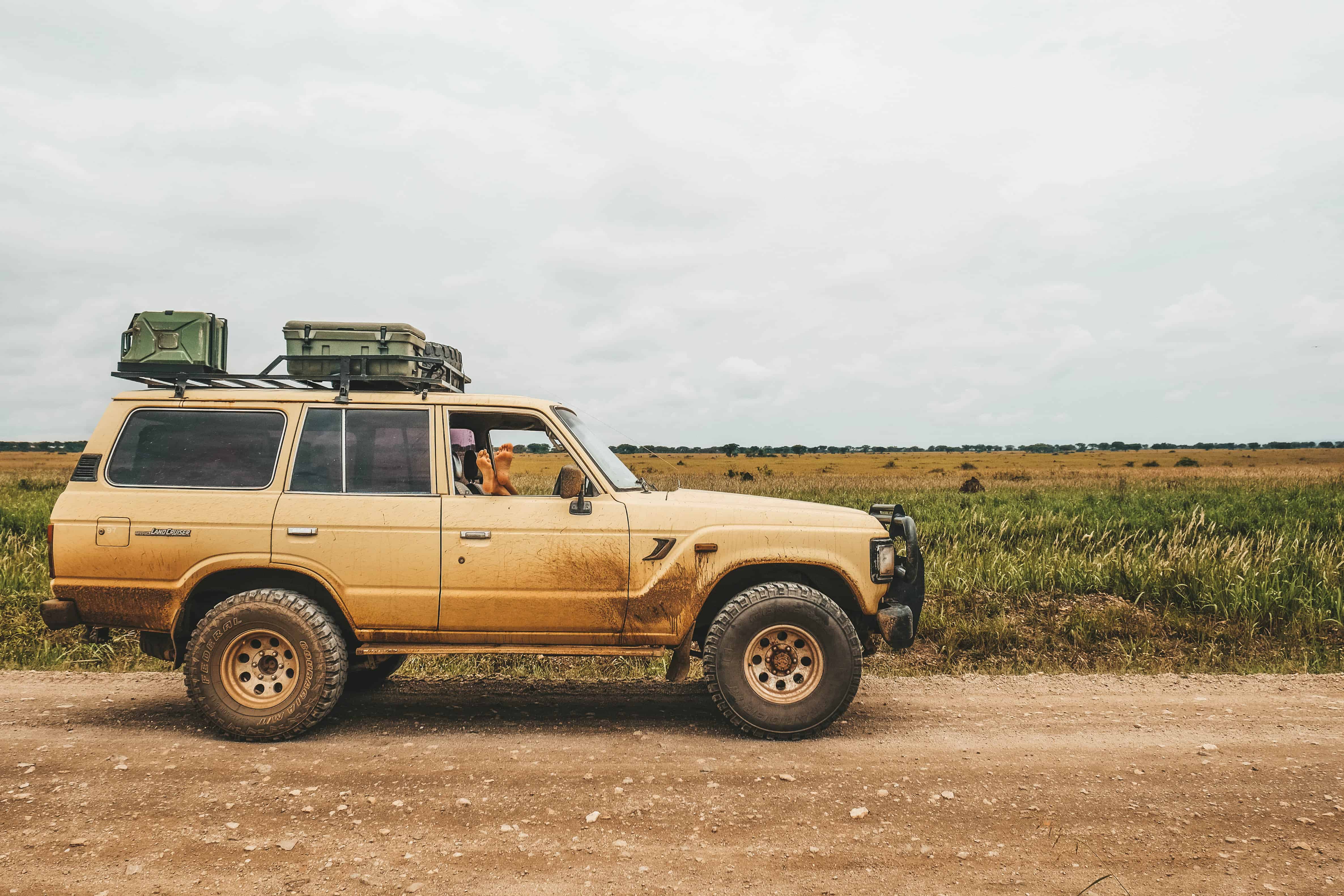
It has been a long time since we sat naively in Europe contemplating the idea of an Africa overland trip. Now 12 African nations, 25,000 miles, and zero flat tires later it’s a time for reflection on just what I have learned from overlanding Africa.
We’ll never forget the days we spent in our trusty Land Cruiser rolling through South Africa, Mozambique, Lesotho, Swaziland, Namibia, Botswana, Zimbabwe, Zambia, Tanzania, Malawi, Rwanda, and Uganda.
Overland Africa – What We’ve Learned
We’ve gotten our 15 minutes of fame

First things first, when you are overlanding Africa and get away from the tourist destinations of the Serengeti, Victoria Falls, or Zanzibar you’re going to be treated a bit like a celebrity. Children waving, smiling, screaming, and running after you. Locals and villagers silently stare in curiosity. In general, people will be very open and curious about the foreigner in their land. Expect to feel a bit like Brad Pitt outside of Hollywood, especially if you are a Mzungu (white person).
We’ve had more than a few instances in East Africa where children will bounce up and down not seeming to contain their excitement screaming at the top of their lungs “A MZUNGU.” It’s cute, funny, welcoming, and heartwarming even if they sometimes do only think we are there to give them candy and money.
At the beginning of our overland trip through Africa we thought that there were many more people like us. Those with a 4×4, tent, and equipped to tackle Africa – but that proved wrong. Overlanders in Africa will often find themselves in empty campsite after empty campsite, going days – even weeks before seeing another tourist. It does not take much imagination to wonder what the big fuss is about when locals see two white people driving through their village in a big truck.
Note – Please do not give children candy or money on your travels as it just encourages them to ask foreigners for this. Plus, we haven’t seen many reputable dentists throughout our travels in Africa. If you want to give I would suggest giving books, pens and paper, or canned food to their parents. It’s also worth noting if you give one child anything you must give them all something or you’ll likely cause a fight between them.
Forget about asking for help

Most locals are curious and friendly, but that does not mean they are great navigators. We learned this the hard way a couple of times after asking for help in remote villages. Either no one wants to say that they cannot help you for fear of disappointment. Or they just simply wish you would stop speaking a language they can’t understand well and will tell you whatever to make you stop and go away.
Go that way – no that way – now go that way to reach your destination. Two hours later in the middle of nowhere Uganda on a one-lane dirt track, only big enough for a moped with almost no petrol left and the sun setting. It was there we decided – No more asking locals for directions. This isn’t to say that not a single person will be able to help with directions in Africa because this certainly isn’t true. However, an old fashion map and a GPS will do you better when you drive overland across Africa.
Maps.Me is your friend

Have you heard of the app Maps.me? If you haven’t and you are overlanding Africa, or anywhere, you may want to stop right now and download it. This handy map has some of the most remote routes on it through the middle of nowhere.
Forget all the other navigation apps and download offline maps with Maps.me of each country you will be in in Africa. We would literally be lost without it. (Yes, we still have gotten majorly turned around in Africa)
It’s not an overland Africa tour

There is overlanding Africa and then there are overland tours. No matter how many times we have cursed the African continent. No matter how much corruption, bad roads, dirt, long days, and difficulties we’ve had. We’re convinced we would never trade it for a traditional overland tour.
The places that we have been able to get to and see because we have our own vehicle and time frame have left me speechless. There have been so many times where it’s just us, a beautiful landscape, the birds singing, and a gin and tonic in hand. Almost like no other foreigner had ever stepped foot there before. Of course, it’s much tougher than jumping on a tour, but the experience of doing it yourself is well worth the reward. Don’t get me wrong we see the appeal of the overland tour companies, and I do recommend them to many travelers. Not everyone can drop everything, buy a car in Africa, and hit the road for months on end. A tour is still a great way to see Africa without all the headache of planning and navigating.
For the love of God fill up the car
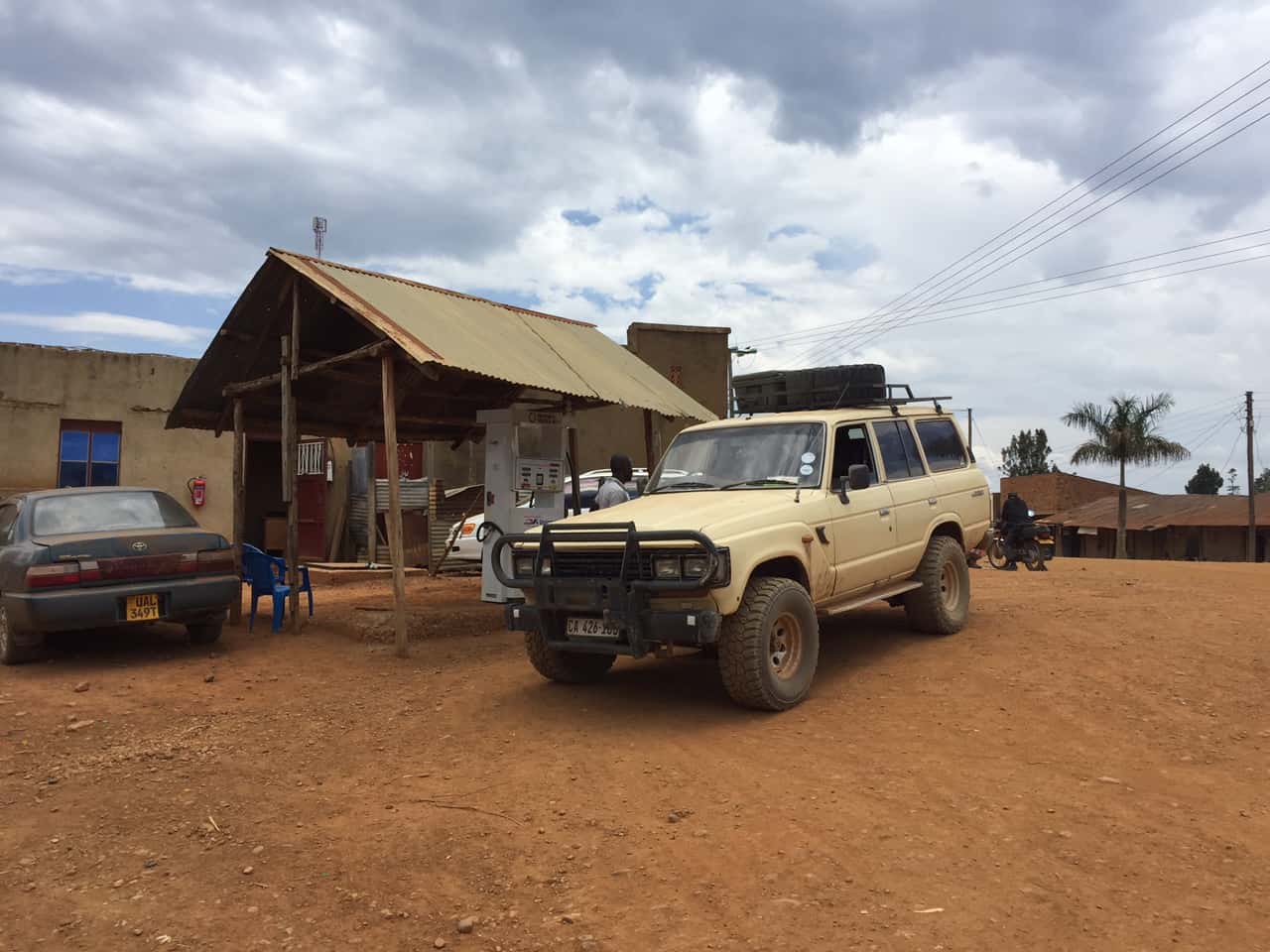
In high school I used to ride my 1996 Saturn until it was on fumes, to avoid having to pay for fuel. Don’t be sixteen year old me in Africa.
Sometimes fuel stations are few and far between so planning a route with plans for fuel is important. Always ensure that you have enough fuel to reach your destination. Before any long term trip it pays to have a familiarity with your truck to understand its fuel economy in different environments. Cameron is always plotting distances between fuel points and what we estimate to burn. When it comes to an overland equipment list, jerry cans are one of the best investments.
A bicycle can go very very far
Did you know that you can fit a whole couch on the back of a motorbike? Or how about a store? Think only two people belong on a moped? Think again! There is room for four if not five people!
It always amazes us to see how much can be loaded on even the simplest of bicycles and mopeds in Africa. I do know there is major skill in balancing huge items on the back of bike, and I’m certain I would fall flat on my face. Props to these guys.
There are no rescue squads
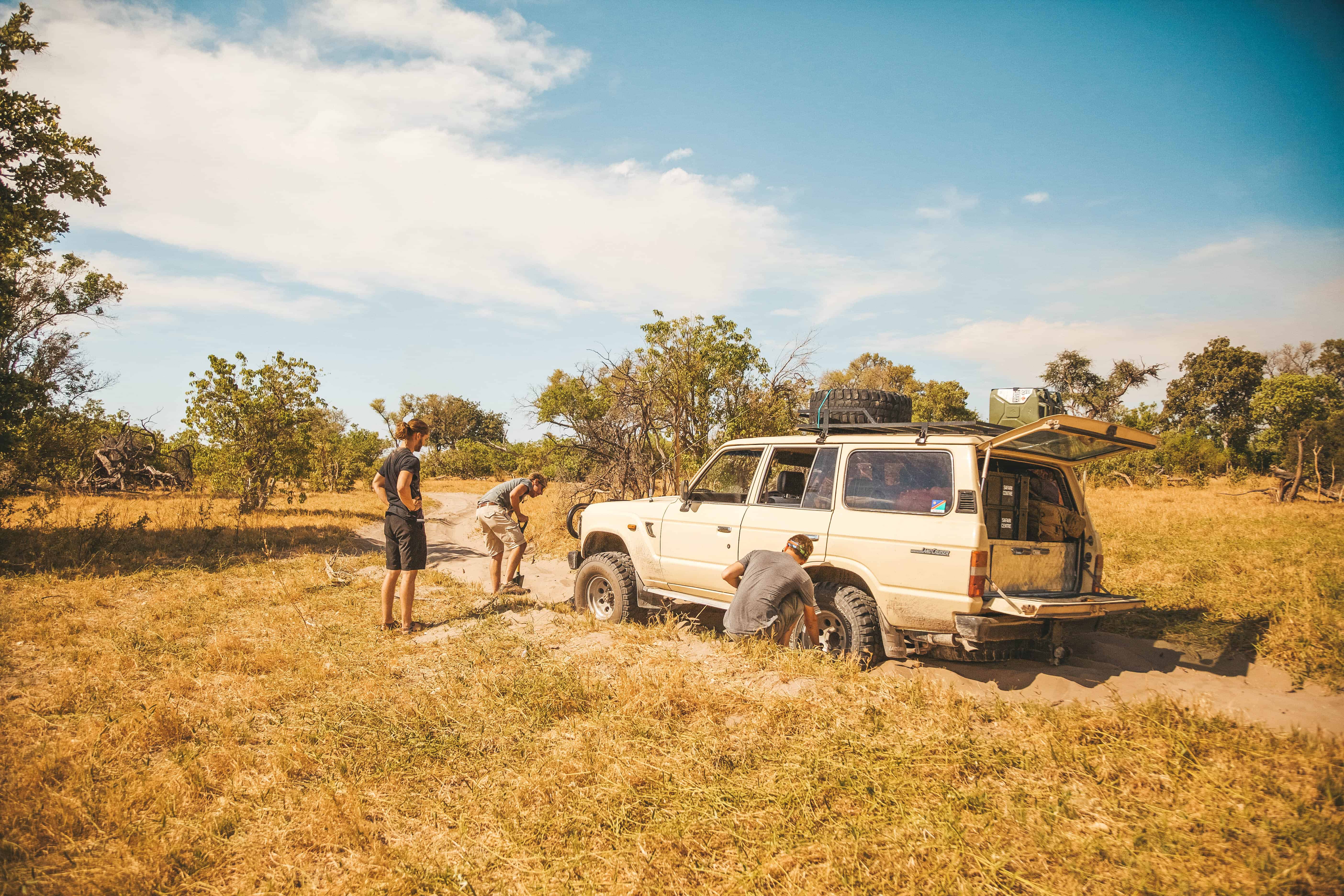

An overland vehicle should be equipped with rescue items like an air compressor, tire repair kit, spare tires, tow ropes, a tool kit, high lift jack, shovel, axe, and a water supply. The expenses can really add up, and I’m not even talking about the already big investment for the overlanding vehicle. However, you need to be self-sufficient should the worst happen.
It took us one instance of getting buried up to our chasis in deep sand in Botswana to know that our investment on these rescue items was worth it. It was 100 degrees, remote, and full of deadly animals from the big five. We could have been stuck for days on the track had we waited for a rescue squad.
In fact, there have been instances of unprepared travelers dying in the wilderness when their vehicle gets stuck. Fortunately, we were able to get ourselves out in under two hours, and had we been more experienced it would have been less. If you want to know more, check out what’s in our car here.
You’re never too far from a toilet
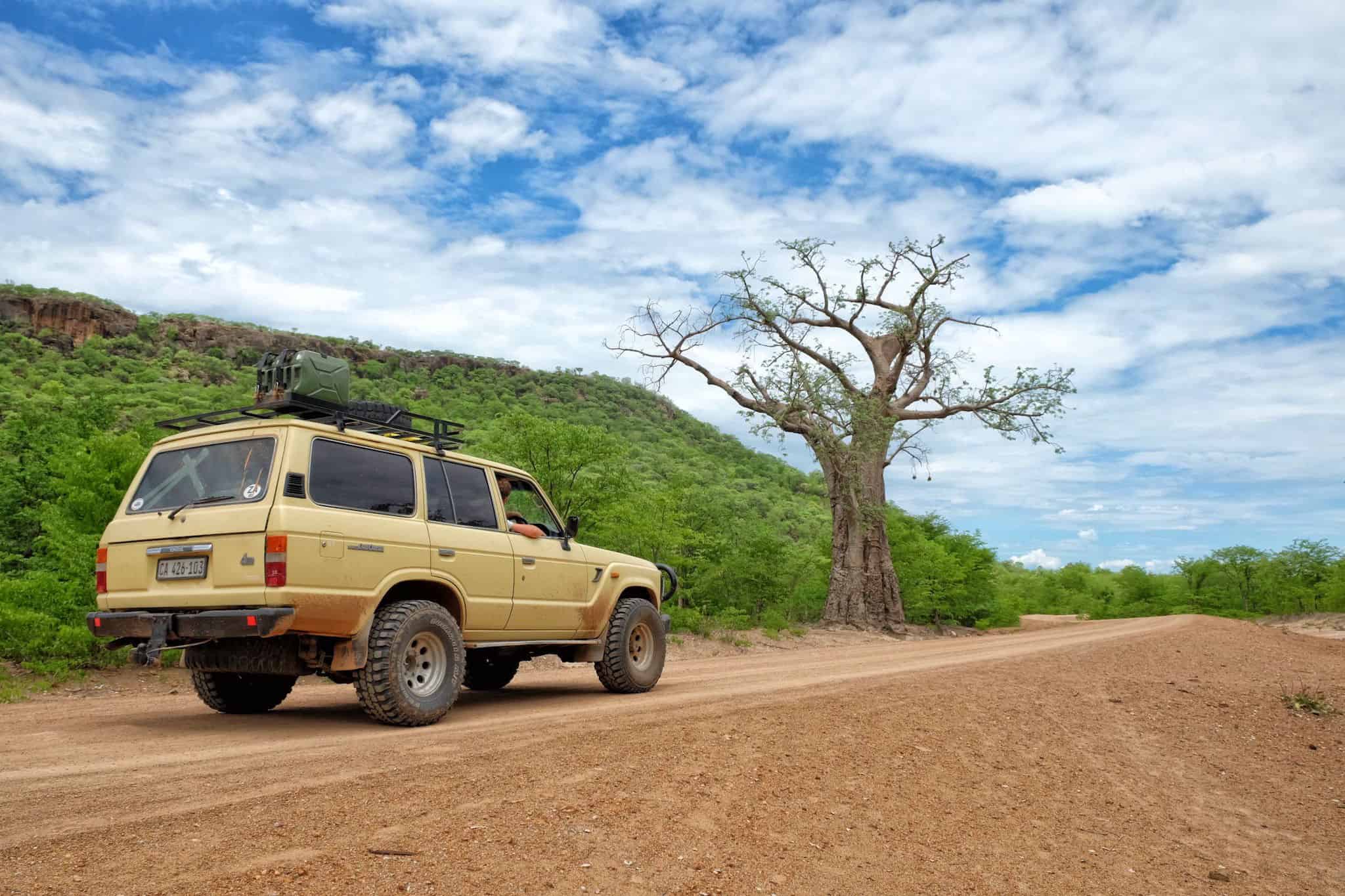
No, I don’t mean one of those fancy rest stop toilets you can find off a highway in the US or Europe. You won’t find a McDonalds to sneak into to do your business in Africa, you will find something better – nice open fields.
Make sure to keep some toilet paper stashed in the trunk for those long days, as pee breaks off the side of the road near a baobab will be the best toilet you’re going to get. If you aren’t really a bush goer, remember, you will likely want to go in the bush rather than the toilets you’ll find on the African roads.
Among the baobabs in Zimbabwe
Cosmetics are overrated
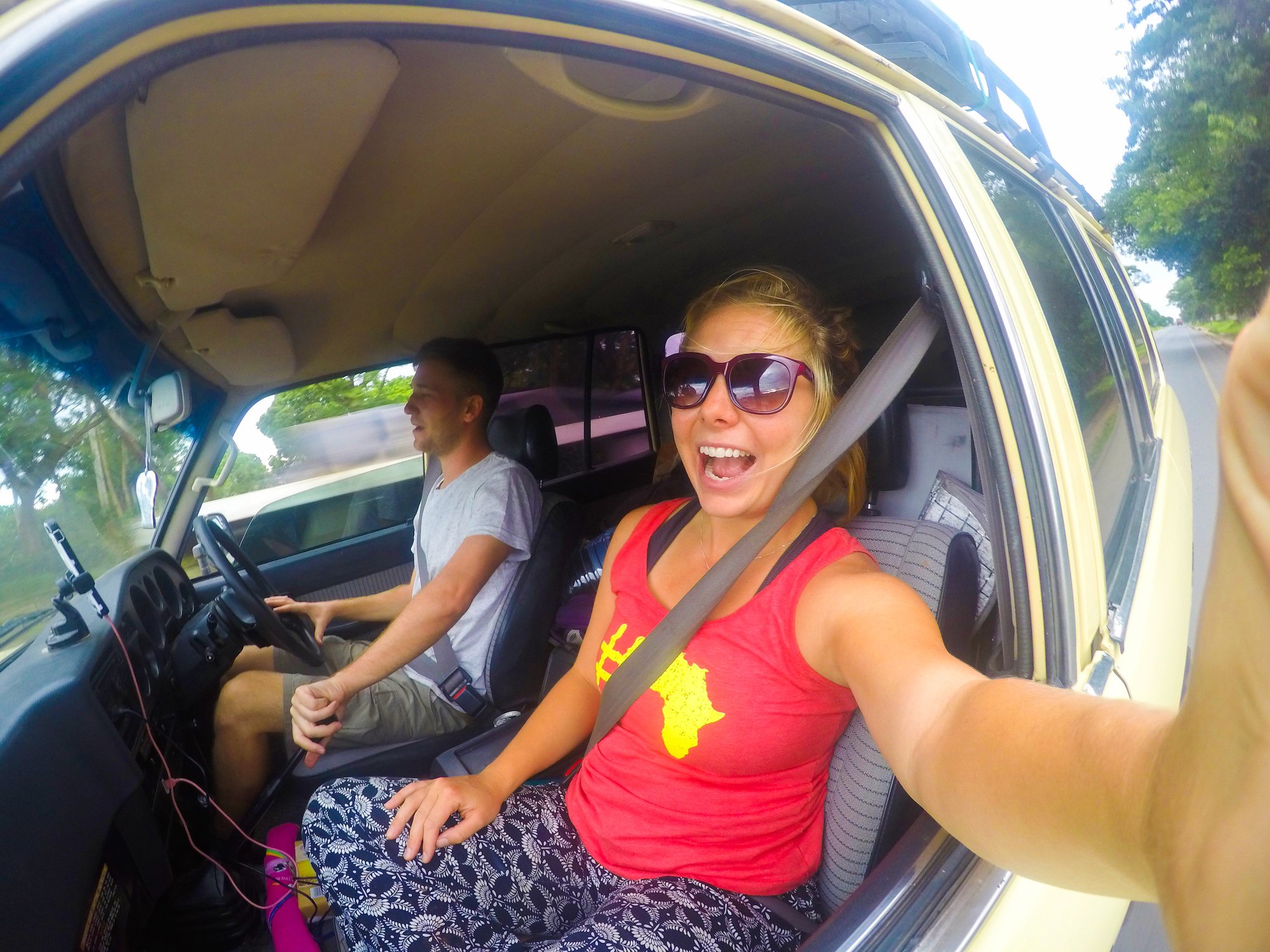
I usually only wear eye makeup to make up for my super blonde eyelashes when I travel, but for Africa, I completely cut it all out. Sweat, dirt, and makeup don’t blend together quite as well as concealer and blush so free your face and go all natural while overlanding Africa! You’ll likely not need it anyway since the African sun gives your face a nice glow!
I could have been born somewhere else

On a more serious note overlanding Africa has reminded us of how privileged we are in life. Traveling through rural, undeveloped villages and towns where the only source of water is from a sprocket 3 km’s down the road reminds us that we could have been born somewhere else.
Because no matter what curveballs life may throw at you, the biggest curveball is your birthplace. Were you born in a rural village with no access to proper education, a running toilet, or electricity? Or were you born in a western country to a good family worrying about first world problems? Many of us in North America, Australia, and Europe don’t even know how privileged we are until we see the other side.
Just smile
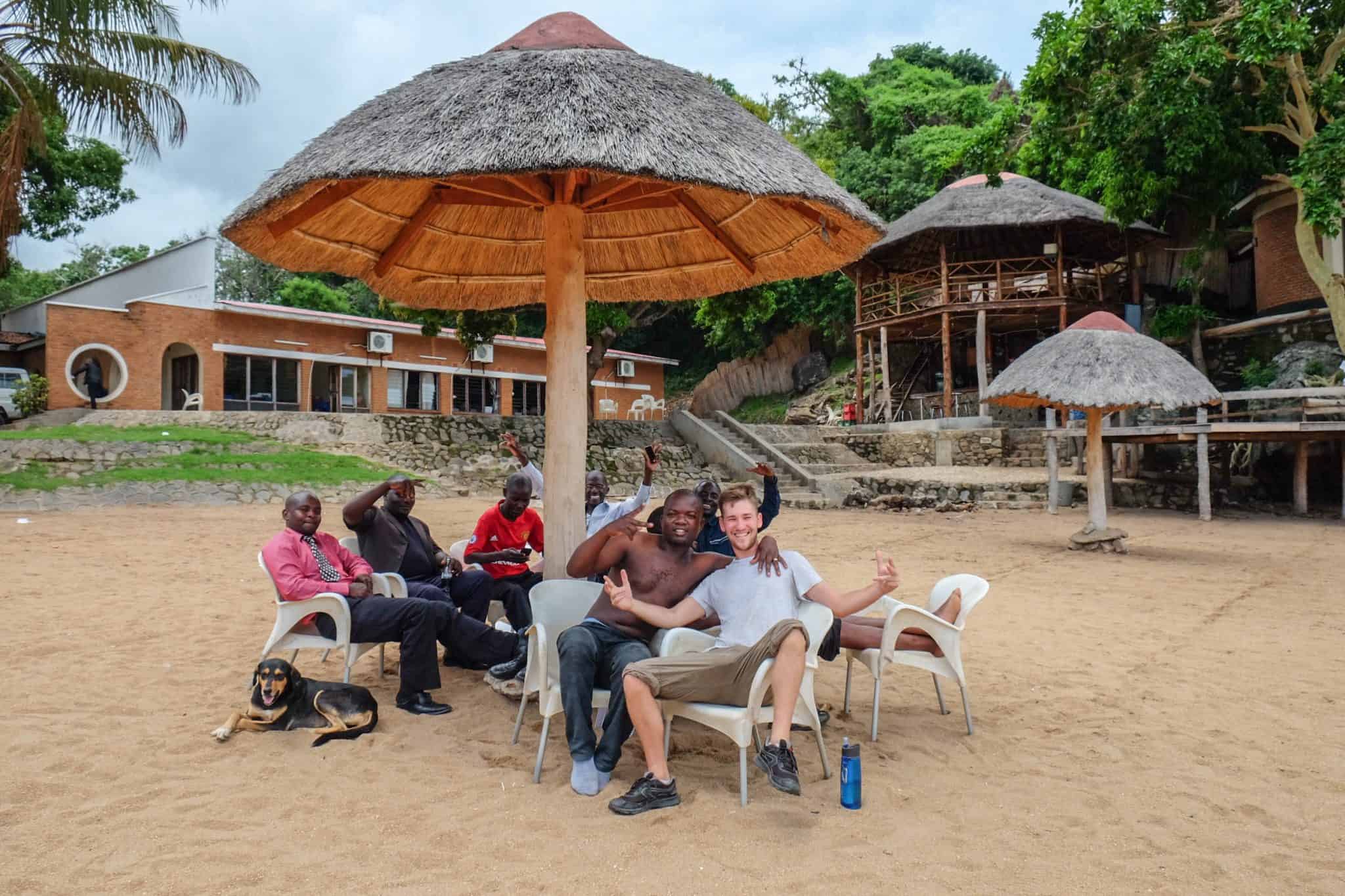
Although we feel we have seen rampant poverty we are usually greeted with a smile in Africa. Most people are warm and friendly no matter what they are dealing with in life. We have come across some of the poorest people, with nothing to show but smiles. Makes us wonder who is truly more fortunate at times.
The media sucks

While I can’t lie and say that we’ve felt 100% safe during our whole trip through Africa I can count on one hand the number of times we’ve felt a little bit uneasy. Western media markets really play up Africa into being a scary and dangerous tourist destination that scares people into only traveling with an organized tour or not traveling the continent at all.
Not only that, but news outlets also like to lead people to believe that Africa is one big giant nation. A war in Somalia? Translation: Yup, definitely don’t go to Africa right now. Civil unrest in the DRC? Translation: You will die in Africa.
I will never travel into a conflict zone, but never will the media make up my mind on where to travel. And no, nothing bad has ever happened to us in Africa.
A crash is never out of the question
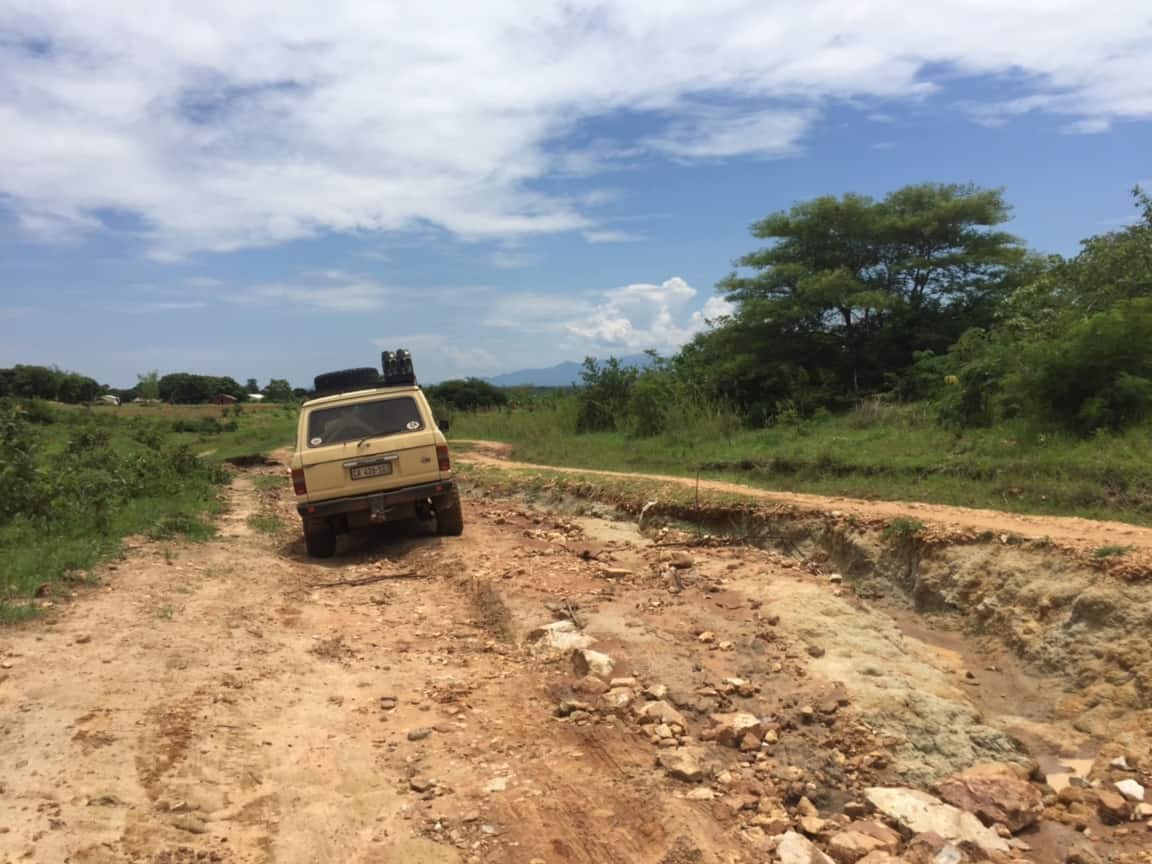
It’s true. Most of the roads we’ve traveled through in Africa are downright scary and dangerous. They are pothole rigged, washed out from rain, and sometimes it’s hard to believe there ever was a road in the first place. To make matters worse local drivers can be terrible. They will overtake you without warning, drive at excessive speeds, and then stop in an instance.
We found the main roads in South Africa, Rwanda, and Tanzania to be pretty well maintained but anything off some of the major roads are deadly. Don’t think that the African capital cities are any better because the traffic can be a downright nightmare. I can’t count the amount of semi’s (yes semi’s) that we have seen flipped over on the side of the road while overlanding Africa.
A little dust never hurt anyone

Prepare to get a little dirty driving on the dirt roads of Africa. I’m not talking about just you as an actual person, but your vehicle and all the belongings in there as well.
We stopped regularly washing our car about two weeks in Namibia and have probably cleaned our camping supplies at least ten times a month. You can’t stop the dust and dirt, so embrace it!
Cows don’t give a shit

If there is one thing to take away from this whole Africa overland extravaganza it’s that cows literally do not give a shit. They have places to go and grass to eat and if they are in the middle of the road you are driving on then you will have to suck it up and wait.
Consider the cows the stoplights of Africa. No matter how big or small you are, let them stand and stare at you while they know you have somewhere to be. Moo over!
If you want the full story of our trip across Africa that can be found here!
Our Overland Trip!
Plan Your Trip to Africa
- Travel Insurance: We don’t travel without travel insurance and neither should you. You never know what can happen while traveling so it’s best to be prepared. HeyMondo provides excellent short-term and long-term travel insurance plans.
- Travel Waterbottle: When we’re uncertain about the water supply we use our Grayl Purifier. It’s come in exceptionally handy around Africa.
- Camera Gear: Chances are you’ll want a camera for your trip to Africa. We love the Sony RX100V for a pocket-size camera and the Fujifilm XT-4 for a professional camera. Check out our favorite cameras for Africa.
- Safari Clothes: Lightweight, beige, and moisture-wicking clothing are great for traveling Africa. See our favorite safari clothing here.
- Safari Hat: A good hat is both stylish and functional.
- Safari Bag: A durable bag is ideal for traveling around Africa.
- Safari Pants: We recommend neutral-colored pants as they’re great at hiding dirt and can match most shirt colors.
- Safari Shirt: Shirts like these are lightweight and keep the bugs away!
- Boots: While you don’t need to wear sturdy shoes every day, at least one pair of safari boots will make your trip nicer!
- Travel Adapter: You’ll need a special travel adapter for traveling to Africa. Get one before you get there so you don’t pay a premium on the ground.






Hello, My wife and I are celebrating our 48th anniversary self driving and gorilla trekking at the end of August, and really enjoyed your website and information.
If I have a car from Kigali, can we drive ourselves into the Bwindi Park and see gorillas. OR, do you suggest flying into Entebbe and driving from there?
How can we purchase a gorilla permit and do you need a car rental with a guide, and if so, what is the cost for the car hire and guide?
We intend to go to Kenya to see the great migration at Massai Mira Park, Can you recommend an itinerary to entail all the places above.
Please advise at your earliest convenience. Thank you! Larry & Deborah L’Hotta llhotta@gmail.com
We drove ourselves and it’s doable with a proper 4×4 vehicle and knowing a bit about the African bush.
You can see all our info about gorilla trekking here: https://theworldpursuit.com/gorilla-trekking-uganda/
And info about the Masai Mara here: https://theworldpursuit.com/masai-mara-national-reserve-guide/
I really wanted to read you post on why you moved to the Canadian Rockies, yet every time I click on it, I get directed to ”15 things we’ve learned from Overlanding Africa”
Thanks for letting us know. We’ve fixed the mistake!
Is there a full map of your entire route? Would love to see as I’m planning to do a full blown west coast route from the north to the south.
Here you are! https://theworldpursuit.com/africa-travel/
Hi thanks so much for this, the information is really helpful in planning and consideration for our upcoming Trans-Africa journey. Just wanted to point out you might want to edit or remove the section on Maps.Me for now. I downloaded it on your recommendation but the app is very glitchy and it crashes and shuts down when you try to set a route. I’m not sure if it has to do with their recent update but it makes the app unusable for navigation and judging from others recent reviews the last few updates have been glitchy also. Again thanks for all the info, it has given us a lot to think about.
Hey Natasha,
I absolutely loved reading this. My husband and I are embarking on our overlanding trip in June 2023. We would love some advice on how on earth you managed to buy a car. It seems really complicated but something we are desperate to do. Thanks so much!